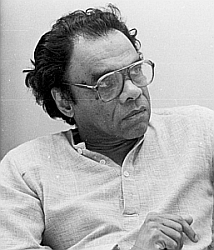Novel
KIM
Much of Rudyard Kipling’s writing, both fiction and nonfiction, focuses on India. Kipling— himself an Englishman born in Lahore, who lived and wrote during the late nineteenth and early twentieth centuries at the height of the British Empire— was known as one of the most vocal proponents of his time of British rule in India. His writing reflected the largely common belief held by Britain that the Western world had a moral obligation to provide the Eastern, nonwhite world with what they saw as their superior political and intellectual guidance. This complex of superiority was coupled with the largely held and promoted stereotypical portrayals of the Asiatic person as weak, immoral, and incapable of independent advancement. Of course, hand in hand with this sense of moral obligation to impose British government on the “dark races” of the world was the amassing of economic and global power for Britain itself, the largest empire the world had ever seen. Thus, the maintenance of the sense of moral obligation in India was a significant part of the ideology behind the economic welfare of the empire.
Kipling’s nonfiction work was bluntly polemical, but a pro-imperialist message pervades his fiction as well. Even though the novel Kim, with its vibrant descriptions of the geography and cultures of India, seems to be a celebration of the subcontinent and its native peoples, it nevertheless is structured as a pro-imperialist work. Specifically, Kipling creates a very particular portrayal of the political environment of India that pointedly ignores the growing conflict between the native Indians and their British rulers. His constructed misrepresentation of the Indian political environment serves to maintain the strength and validity of the British presence in India.




Comments
Post a Comment